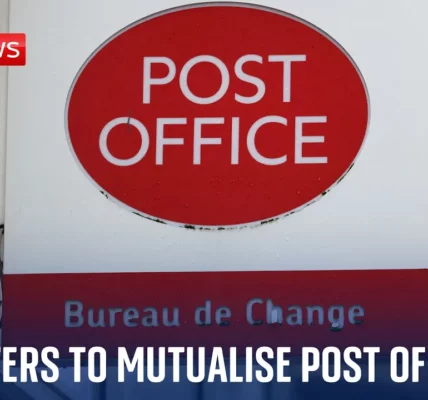Government Plans to Crack Down on Late Payments Affecting Small Businesses

In this article, we delve into the recent announcements from Business Secretary Jonathan Reynolds regarding the government’s new measures to address the issue of late payments that severely impact small businesses in the UK. We will also explore the implications of public finances and the transparency of political support in the current economic landscape.
Introduction
Late payments have long been a significant challenge for small businesses in the UK, leading to cash flow problems and even insolvency in some cases. Business Secretary Jonathan Reynolds has recently shared the government’s commitment to tackling this pressing issue, unveiling a series of reforms aimed at enhancing payment practices among large firms. These measures not only aim to protect small enterprises but are also part of a broader economic strategy to foster growth and sustainability in the business sector.
Government’s New Measures
The government has outlined several key initiatives to combat late payments, particularly focusing on large companies that often delay payments to their suppliers. These measures include:
- Mandatory Reporting: Large companies will be required to report their payment practices in their annual reports. This transparency will hold firms accountable for their payment behaviors.
- Fair Payment Code: A new Fair Payment Code will be introduced, providing rankings and incentives to businesses that prioritize timely payments. This code aims to create a culture of prompt payment across the industry.
- Consultation Launch: The government plans to initiate a consultation process to gather feedback on further changes that can be implemented, reflecting commitments made in their manifesto.
Importance of Addressing Late Payments
Tackling late payments is not just about financial transactions; it is a matter of fairness and economic health for small businesses. The implications of late payments can be far-reaching:
Impact on Small Businesses
For small businesses, late payments can lead to:
- Cash Flow Issues: Delayed payments disrupt cash flow, making it challenging for businesses to meet their operational costs.
- Increased Borrowing: To manage cash flow, businesses may resort to borrowing, incurring additional debt and interest.
- Job Losses: Financial strain can lead to layoffs or even business closures, affecting livelihoods and local economies.
Economic Growth
By ensuring timely payments, the government aims to stimulate economic growth by:
- Supporting Job Creation: Healthy cash flow enables small businesses to hire more employees.
- Promoting Fair Competition: Timely payments create a level playing field where small businesses can compete effectively with larger firms.
Public Finances and Transparency in Political Support
Reynolds addressed concerns regarding the transparency of political support and public finances, particularly in light of recent discussions about financial expenditures and political contributions. Key points include:
Transparency in Political Contributions
Political contributions can sometimes raise eyebrows, especially when they involve significant sums. Reynolds emphasized:
- Clear Rules: There are established rules governing political contributions, ensuring transparency and accountability.
- Support Types: Contributions can vary, from campaign literature support to personal hospitality, all of which must be declared.
Addressing Public Concerns
With rising public scrutiny over expenditures, particularly in government roles, it is vital to maintain transparency. Reynolds reassured stakeholders that:
- Decisions about public finances are made based on established processes.
- Public officials are held to high standards of accountability regarding their financial dealings.
- The government is committed to making tough decisions to stabilize public finances for the future.
Conclusion
In conclusion, the government’s new plans to address late payments are a significant step towards supporting small businesses in the UK. By implementing mandatory reporting, establishing a Fair Payment Code, and promoting transparency in political support, the government aims to create a more favorable business environment. As these measures take effect, it will be crucial for businesses and consumers alike to stay informed and engaged in the process. We encourage readers to share their thoughts on these developments and explore related articles on our site to stay updated on the latest economic policies.
“`




